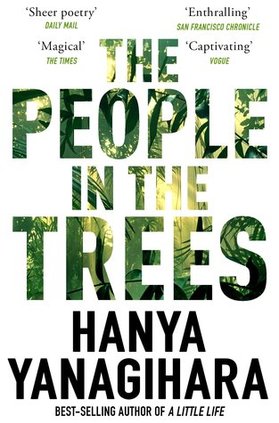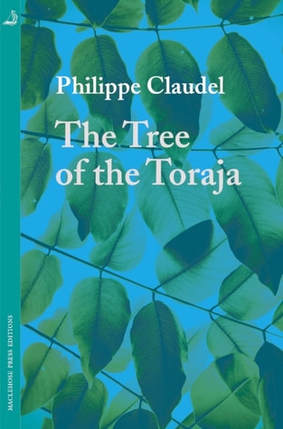The People in the Trees by Hanya Yanagihara
In 1950, as a newly qualified doctor, he travels to a remote Micronesian island with a couple of anthropologists, in search of a rumoured lost tribe. Their discovery of a group of forest dwellers living up to four times their natural lifespan eventually wins Perina the Nobel Prize.
But there are costs, on many levels. For the Islanders, what seems like immortality is accompanied by a progressive dementia for which they are exiled from their community to scavenge for sustenance as best they can. But that doesn’t stop the pharmaceutical companies flocking to Ivu’ivu to try to isolate the magic ingredient of eternal youth.
Of course, this Western invasion alters the indigenous culture, triggering a taste for alcohol, Christianity and, somewhat amusingly, Spam. While previously far from idyllic – along with Perina, we witness a boy’s “initiation” by being sodomised by the elders while the community, including his parents, look on – the change seems largely for the worse.
Whether through guilt at his part in the island’s ruination, through something sparked by that boy’s attractiveness, or his own displaced bid for immortality, Perina acquiesces to a mother’s request to take her child for a better life in the USA. Over the ensuing decades, he adopts forty-three children from Ivu’ivu, all of whom abandon him when he’s charged with child sexual abuse.
The People in the Trees is Hanya Yanagihara’s debut novel, published for the first time in the UK after the Man Booker Prize shortlisting of her second novel, A Little Life. Having missed that one, I was pleased to have the opportunity to read this, courtesy of Picador.
With themes of race, colonialism and exploitation at different levels, it’s an impressive achievement and a riveting read. I imagine the footnotes – passed off as the friend’s editing of Perina’s text – would bring another layer of meaning but I chose to skip the tiny font as a post-modern step too far.
I relished this novel as an addition to my collection of fictional research. As in Allegra Goodman’s novel, Intuition, we see the tension and tedium of the biomedical research lab where potential treatments are first tested on animals; as in Lily King’s Euphoria there’s also the feverish excitement and cultural alienation of anthropological fieldwork. I particularly appreciated the arguments between the Westerners about cultural relativity (sparked by the sexual initiation ceremony), Perina’s fascination with difference turning to hatred as he longed for home, and his anthologist colleague’s fear of publishing improbable findings.
The Tree of the Toraja by Philippe Claudel translated by Euan Cameron
Returning home to Paris, he learns that his colleague and closest friend is dying of cancer. The text of the novel becomes his own Toraja tree, a way of keeping his friend alive in his mind by continuing the conversation that has been fundamental to their relationship. Meanwhile, despite divorce and her remarriage, he’s remained very much involved with his former wife. But now, with his friend’s death and the dawn of a new relationship with a much younger woman, he must mourn the demise of his marriage too.
Philippe Claudel’s sixth novel in English translation is a philosophical, reflective exploration of love and friendship, illness, death and our relationship with our bodies. It’s also about filmmaking, and I really enjoyed his observations of how “fiction shapes the universe” (p132) as our familiarity with film’s conventions influences the reporting of real events.
The overlap between the author’s biography and his narrator’s made me wonder whose musings I was reading. This wouldn’t be a problem for most readers, but I’m not keen on memoir. It might be unfair but, in this context, the ease with which he slips into the May-September relationship smacked of wish fulfilment which I found a little uncomfortable.
Nevertheless, refreshing to read something different, especially after my obsession with the hero’s journey story structure. Thanks to MacLehose Press for my review copy.























 RSS Feed
RSS Feed





















